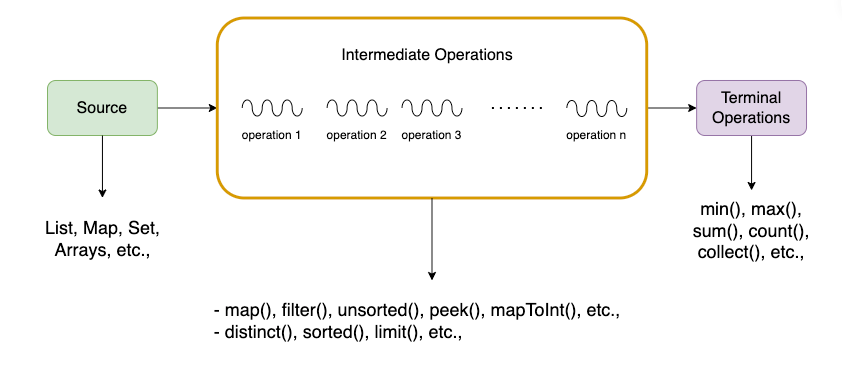Navigating the Hub: A Deep Dive into the Map of Boston
Associated Articles: Navigating the Hub: A Deep Dive into the Map of Boston
Introduction
With nice pleasure, we are going to discover the intriguing matter associated to Navigating the Hub: A Deep Dive into the Map of Boston. Let’s weave attention-grabbing info and provide contemporary views to the readers.
Desk of Content material
Navigating the Hub: A Deep Dive into the Map of Boston

Boston, a metropolis steeped in historical past and brimming with trendy vitality, presents a singular geographical problem – and reward – for the navigator. Not like many deliberate cities with grid-like layouts, Boston’s streets wind and twist, a testomony to its natural development over centuries. Understanding the map of Boston is vital to unlocking its wealthy tapestry of neighborhoods, landmarks, and experiences. This text explores the town’s cartographic complexities, highlighting key options, historic influences, and sensible navigation suggestions.
A Metropolis Formed by Historical past: The Genesis of Boston’s Map
The map of Boston is not a clear slate; it is a palimpsest of historic layers. Its earliest type, reflecting the settlement of Shawmut Peninsula within the early seventeenth century, could be remarkably completely different from the sprawling metropolis we all know right now. The unique settlement adopted the pure contours of the land, hugging the shoreline and increasing alongside waterways. This natural development, coupled with later annexations of neighboring cities, resulted in a fancy and sometimes complicated road community.
The winding streets, typically slim and irregular, replicate the haphazard growth of the town. Not like the deliberate grids of cities like Philadelphia or Washington D.C., Boston’s streets developed organically, dictated by the terrain and the wants of its inhabitants. Many streets comply with historical cow paths or winding waterways, making a labyrinthine allure that concurrently captivates and frustrates guests. This historic growth is vividly mirrored on the street names themselves, typically referencing early settlers, historic occasions, or geographical options.
Key Geographical Options and Their Influence on the Map
A number of geographical options have profoundly formed the map of Boston and its growth:
-
The Charles River: This iconic river acts as a pure boundary, dividing Boston from Cambridge and different neighboring communities. Its presence has influenced transportation routes and the event of waterfront areas, together with the Again Bay and the Charlestown Navy Yard. The Charles River Esplanade, a picturesque park alongside the riverbank, is a major characteristic on the map and a well-liked leisure vacation spot.
-
Boston Harbor: The harbor, as soon as the lifeblood of Boston’s economic system, continues to play an important position. Its shoreline defines a lot of the town’s southern boundary, encompassing quite a few neighborhoods and historic websites. The harbor islands, together with Georges Island and Spectacle Island, are simply seen on the map and provide distinctive views of the town skyline.
-
The Hills: Boston’s topography shouldn’t be flat. Beacon Hill, with its steep, cobbled streets and chic brownstones, is a outstanding characteristic on the map, contrasting sharply with the flatter areas of the Again Bay. These hills, together with the irregular shoreline, contributed to the town’s winding road sample.
Navigating the Neighborhoods: A Map-Primarily based Exploration
Understanding Boston’s neighborhoods is essential for efficient navigation. Every neighborhood possesses a definite character, mirrored in its structure, ambiance, and landmarks. A map is important for exploring these various areas:
-
Downtown Boston: The guts of the town, encompassing authorities buildings, monetary establishments, and main vacationer sights like Faneuil Corridor and the Boston Frequent. This space is comparatively compact and simple to navigate on foot.
-
Beacon Hill: Recognized for its charming fuel lamps, brick sidewalks, and Federal-style structure, Beacon Hill gives a glimpse into Boston’s elegant previous. Navigating its steep, slim streets will be difficult, however rewarding.
-
Again Bay: A meticulously deliberate neighborhood with a grid-like format, contrasting sharply with the remainder of the town. Its vast avenues, elegant brownstones, and upscale outlets make it a well-liked vacation spot.
-
North Finish: Boston’s Little Italy, characterised by its slim streets, vibrant Italian-American tradition, and scrumptious meals. Navigating this historic neighborhood typically includes exploring its intricate community of alleyways and hidden gems.
-
South Finish: A various and vibrant neighborhood with a mixture of Victorian structure, fashionable eating places, and a thriving arts scene. Its streets are a mixture of grid and natural patterns.
-
Fenway-Kenmore: House to Fenway Park, the long-lasting baseball stadium, this neighborhood is a hub of exercise, notably throughout baseball season.
-
Charlestown: Traditionally vital for its position within the American Revolution, Charlestown gives beautiful views of the town skyline and the Bunker Hill Monument.
-
Roxbury: A traditionally vital African American neighborhood, Roxbury is present process revitalization whereas preserving its wealthy cultural heritage.
-
Dorchester: Boston’s largest neighborhood, Dorchester is a various and sprawling space with a mixture of residential, industrial, and industrial zones.
Trendy Mapping Instruments and Their Utility in Boston
Navigating Boston’s complicated road community is considerably simpler with the help of trendy mapping instruments. GPS-enabled smartphones, on-line map companies like Google Maps and Apple Maps, and devoted navigation apps provide real-time instructions, site visitors updates, and public transportation info. These instruments are invaluable for navigating the town, particularly for guests unfamiliar with its format. Nonetheless, it is essential to do not forget that GPS alerts will be unreliable in sure areas, notably in dense city environments or inside buildings.
Past the Streets: Exploring Boston’s Hidden Gems
Whereas the road map offers a framework for understanding Boston’s format, it solely scratches the floor. Exploring the town requires venturing past the principle thoroughfares to find hidden parks, historic websites, and architectural gems. An in depth map, mixed with native guides and on-line sources, can unlock a deeper appreciation for the town’s wealthy historical past and vibrant tradition. For instance, exploring the Freedom Path, a 2.5-mile strolling path that connects 16 historic landmarks, requires a map to comply with its winding route.
Conclusion: Embracing the Labyrinthine Attraction
The map of Boston is greater than only a navigational software; it is a visible illustration of the town’s historical past, development, and character. Its intricate community of streets, reflecting centuries of natural growth, presents each a problem and a possibility. By understanding the historic influences, geographical options, and the various neighborhoods that make up the town, one can navigate Boston successfully and recognize the distinctive allure of its labyrinthine format. Armed with a map, each bodily and digital, and a spirit of exploration, guests and residents alike can unlock the secrets and techniques and delights of this historic and dynamic metropolis.








Closure
Thus, we hope this text has supplied helpful insights into Navigating the Hub: A Deep Dive into the Map of Boston. We hope you discover this text informative and helpful. See you in our subsequent article!